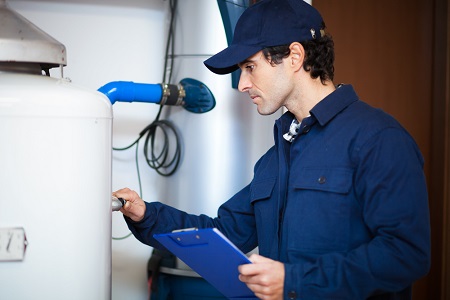 Do you want to know how to check the water heater valve? These 5 tips and tricks will help you make sure that everything works properly.
Do you want to know how to check the water heater valve? These 5 tips and tricks will help you make sure that everything works properly.
Hot water is essential when it comes to keeping your home warm.
A broken heater can make a big difference in your quality of life. It’s natural to want the problem fixed as soon as the water gets cold.
Your water heater in Myrtle Beach has many components that keep it running. Any one of these components can suddenly fail, including the water heater valve.
There are many things you can do to make sure your valve functions well and isn’t at risk of breaking or collapsing. These are some helpful tips and tricks that you will find in this article.
First, what is a water heater drain valve?
Your water heater’s safe operation is dependent on the water heater valve. It releases water from the tank and lowers pressure if it becomes too high.
This could happen as a knock-on effect to other parts, so make sure the water heater valve is working.
Your thermostat can malfunction, which can cause your tank to heat up. The valve will then open to release steam and relieve the pressure. This pressure can build up if the water heater drain valve isn’t working. If this happens, the water tank can explode.
How to test your water heater valve
1. You should inspect your heater control valve regularly
While it’s good to check your heater control valve once in a while, you run the risk of an unknown issue if you leave it too long. You will not find it until it is too late.
It is important to inspect your water heater and valve regularly.
You can check your heater tank as often or as little as you want, depending on its condition. We recommend that you check your heater tank every six months.
Make a note of every test to ensure you are checking your valve regularly. Consider setting up a reminder to remind you when your valve needs to be tested again.
2. Learn the Common Problems
Knowing what to look out for will save you time, money, stress, and effort. If you don’t know the difference between normal and abnormal, there’s no point in checking your valve.
There are many common issues with valves, but there are plenty of ways to identify them.
Leakage can cause serious damage to your heater tank. It will maintain low pressure. You should inspect the area around the valve as well as below it for any signs of leakage.
Valve failure can also be caused by rust or debris. Check for any corrosion or blockages in your valve that may have occurred since the last time you checked it.
It’s important to remember that freezing temperatures can cause heater valve malfunctions in colder seasons. You may need to perform additional checks during winter. Call a professional plumber if you need help.
3. Make sure you test the valve properly
These steps will help you test the valve of your heater tank.
To begin, raise the valve several times. This will activate the attachments, allowing hot water to flow from the drainpipe.
Fluid gurgling is to be expected. This is the valve that allows water to enter the drain tube. If there is no sound, it means that the drain tube is not working properly. If it is not more than a trickle then you should contact a plumber.
Close the valve if the test does not show any fault.
After the valve has been closed, water should not be coming through. Check for obstructions that could be causing water to flow back in.
4. Take Care of the Heat
It may seem obvious, but it is crucial to keep in mind how hot your water tank can get. It’s important to wait until it cools down before touching it.
After you have tested the heater valve, make sure it is safe to use your hot water.
The optimal temperature is 120 degrees Fahrenheit. This temperature will not burn or scorch your skin.
Water pressure should be between 50-60 psi. This is a good indicator that your heater and valve are in a safe condition.
Your water tank produces heat, so it is important that certain materials are used for parts. You should consider replacing any parts of your tank that are not made from heat-resistant materials if you suspect this.
5. Do not attempt simple fixes
Many of the problems that can occur with your water heater mixing valve can be fixed at home by cleaning it or doing some repair work. There are some things that can go wrong that you simply cannot fix without the help of a plumber in Myrtle Beach.
It might seem tempting to attempt a home fix for a serious problem, but it is not worth it.
You put your life at risk by trying to repair a water heater that is too complicated. You could also make the problem worse or set yourself up for a worse outcome.
Call a professional water heater repair service for more complicated issues. It will be worthwhile to keep your valve in top shape.
It’s easy to check your valve
Knowing how to check your heater valve will allow you to rest assured that it is less likely to fail and leave you without hot running water. To keep your heater tank in good condition, you only need to check it every so often.
The experts can assist you with any type of repair or replacement for your tank valve. Call Blue Ribbon Plumbing LLC now.
Like our Facebook page for more great info about plumbing services.
Blue Ribbon Plumbing LLC
4201 Carolina Exchange Drive Suite 202
Myrtle Beach, SC 29579
(843) 267-9733
Serving all of Horry County including Myrtle Beach, North Myrtle Beach, Little River, Murrells Inlet/Garden City, Surfside Beach, Carolina Forest/Forestbrook, Conway/Aynor

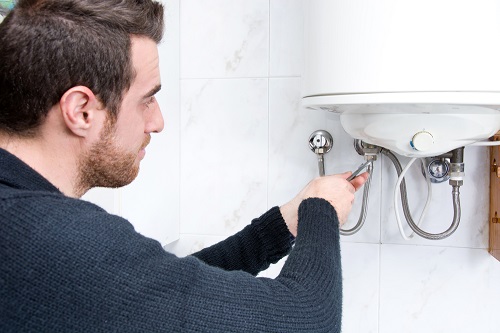

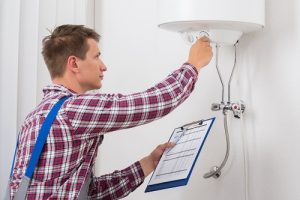 It can be difficult to decide whether to buy a water heater for your home if your existing unit is working. However, in certain cases, water heater replacement may be the best option. This will allow you to save money in ways that you didn’t know. There have been many instances when homeowners have discovered that
It can be difficult to decide whether to buy a water heater for your home if your existing unit is working. However, in certain cases, water heater replacement may be the best option. This will allow you to save money in ways that you didn’t know. There have been many instances when homeowners have discovered that 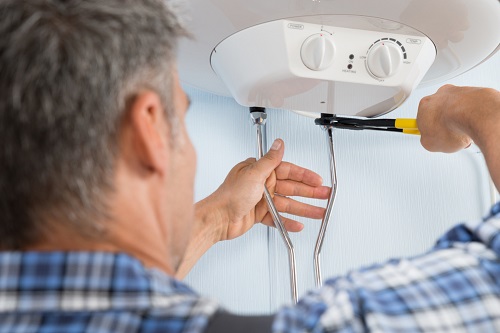
 As a trade professional, you know that the health of your customer’s
As a trade professional, you know that the health of your customer’s 
 Homeowners know how destructive a
Homeowners know how destructive a 
 Don’t let a leaky
Don’t let a leaky 
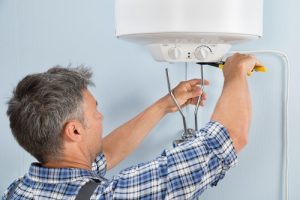 Brace yourself; you’ll never believe this game-changing invention. The
Brace yourself; you’ll never believe this game-changing invention. The 
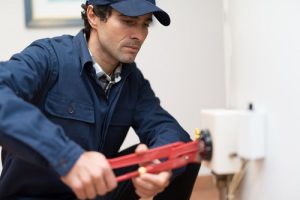 Your home’s
Your home’s 